08:42 | 22/07/2024
Vietnam Clean Energy Forum (4th edition), themed “Mechanisms and Policies for the Development of Gas Power, Wind Power, Waste-to-Energy, and Biomass Energy under Power Development Plan VIII – Current Status and Solutions”, was held on 11/07/2024, in Ho Chi Minh City.
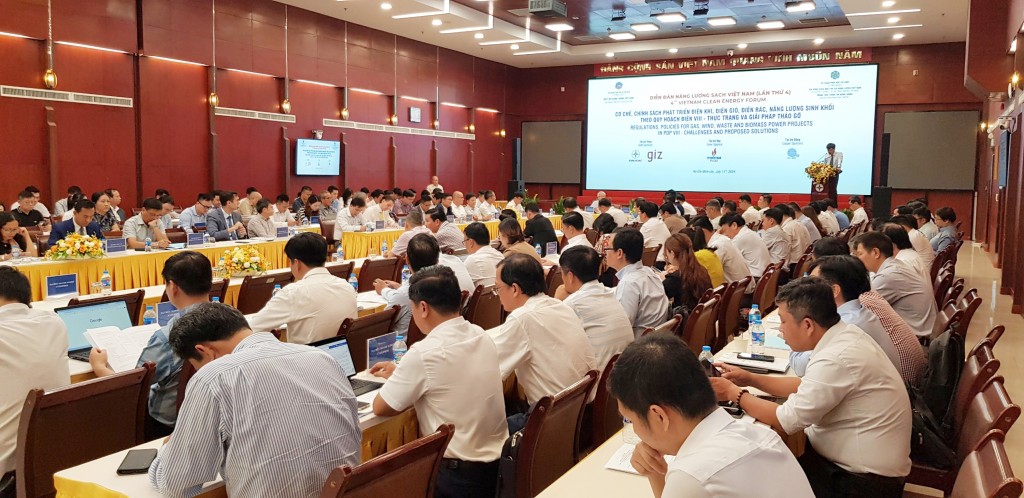
Vietnam Clean Energy Forum (4th edition) with the theme "Mechanisms and policies for developing gas power, wind power, waste power, biomass energy according to Power Plan VIII - Current situation and solutions".
The forum was divided into three sessions with the following topics:
- Session 1: Inadequacies in the mechanisms and policies for investment in LNG infrastructure development (storage and port facilities), and LNG purchasing and selling for gas power projects (2021–2030 period) – Proposed solutions.
- Session 2: Mechanisms and policies for the development of wind power projects (onshore and offshore) under Power Development Plan VIII – Sharing international experiences.
- Session 3: Mechanisms and policies for the development of waste-to-energy and biomass energy projects under Power Development Plan VIII – Current status and proposed solutions.
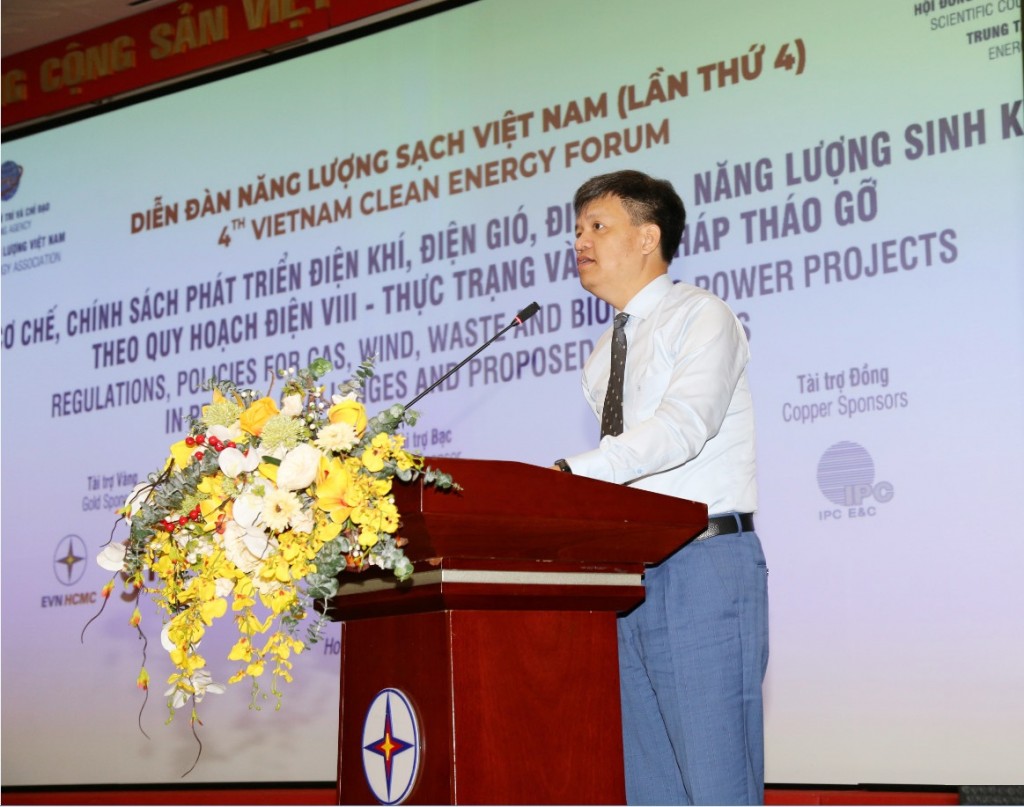
Mr. Ta Dinh Thi – Vice Chairman of the National Assembly’s Committee on Science, Technology and Environment – delivered the opening remarks and provided direction for the Forum.
Mr. Ta Dinh Thi – Vice Chairman of the National Assembly’s Committee on Science, Technology and Environment – delivered the opening remarks and provided direction for the Forum.
In his address, Vice Chairman Ta Dinh Thi officially opened the Forum and outlined the key issues to be presented and discussed during the sessions.
The theme of the Forum addresses highly pressing and practical issues, aiming to contribute to the continued implementation of Resolution No. 937/NQ-UBTVQH15 dated December 13, 2023, issued by the Standing Committee of the National Assembly on thematic supervision of the implementation of policies and laws on energy development during the 2016–2021 period.
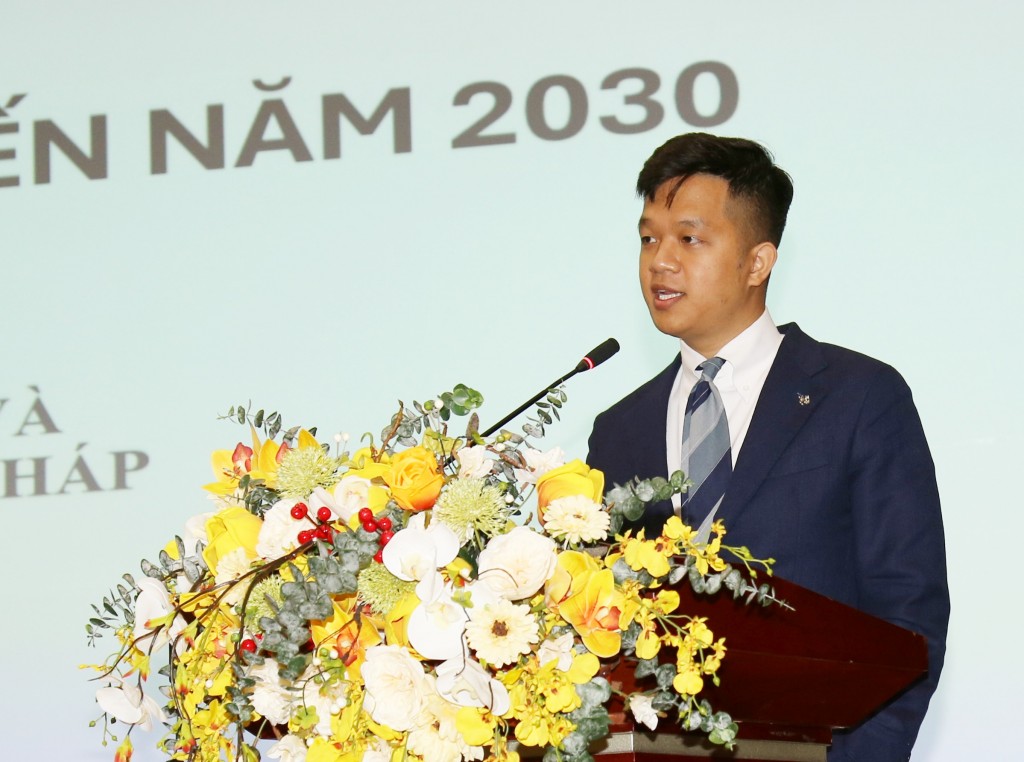
Mr. Cao Duc Huy – Power System Development Department, Institute of Energy.
The presentations delivered by the Institute of Energy (Ministry of Industry and Trade), the Vietnam Energy Association (VEA), and PetroVietnam Gas Joint Stock Corporation (PV GAS) highlighted that: Power Development Plan VIII and the Implementation Plan for the National Power Development for the 2021–2030 period, with specific targets for installed capacity by type of power generation by 2030, have been carefully calculated to ensure the safety and stability of the power system. However, the implementation of Power Development Plan VIII is currently facing numerous challenges, posing risks to electricity supply security.
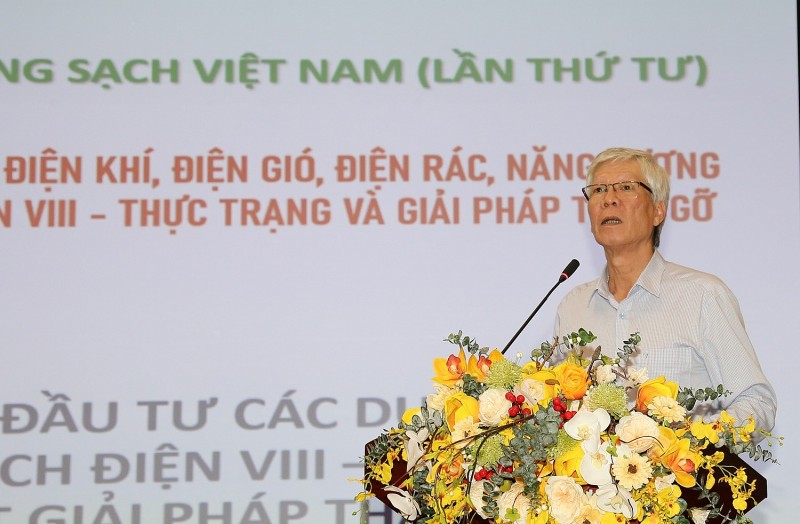
Mr. Nguyen Anh Tuan (A) – Vice President and Secretary General of the Vietnam Energy Association.
Gas-fired power sources are planned for strong development to support the energy transition process. However, aside from some progress in projects utilizing gas from Block B, many domestic gas power projects are facing significant difficulties. Most of them cannot synchronize with the corresponding gas exploration and production projects, as the upstream gas projects themselves are also encountering major implementation challenges.
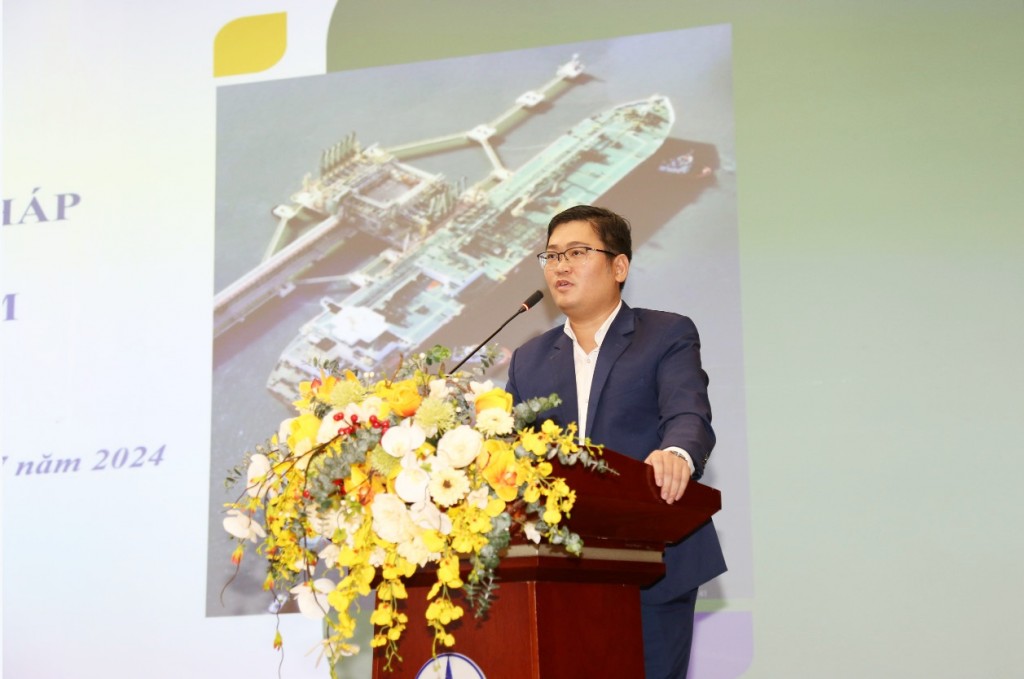
Mr. Tran Anh Khoa – Head of Power Generation and Market Development Division, PV GAS.
From now until 2030, Vietnam plans to develop 13 liquefied natural gas (LNG) power projects with a total capacity of 22,400 MW. However, all of these projects are currently facing obstacles related to power purchase mechanisms and electricity pricing. Except for the Nhon Trach 3 and 4 and Hiep Phuoc (Phase 1) projects, the remaining projects have yet to break ground and are unlikely to begin commercial operations before 2030.
The pioneering LNG power project, Nhon Trach 3 and 4, is expected to complete construction by the end of 2024, but it has yet to reach an agreement with Vietnam Electricity (EVN) on the annual committed power output (Qc). Additionally, the costs related to LNG importation, storage, and regasification remain unregulated, making it difficult for the two parties to align gas pricing with power pricing.
Offshore wind power projects with a total planned capacity of 6,000 MW have not begun construction, posing a high risk of missing the 2030 target. Meanwhile, onshore wind power projects, with an additional 17,890 MW of capacity planned, are still addressing transitional projects (around 4,000 MW), and there is currently no pricing mechanism for new investments. Onshore wind projects have the advantage of faster implementation, so with the right policy mechanisms, the planned capacity targets could be achieved.
The investment demand for power development under Power Development Plan VIII is estimated at USD 13.5 billion per year, of which USD 12 billion is required annually for power generation alone. Meeting this capital requirement calls for mobilizing diverse financial resources, both domestic and international, including international commitments supporting Vietnam’s Net Zero target, and diversified investment models such as public, private, FDI, and public-private partnerships (PPP).
Currently, the implementation of Power Development Plan VIII is facing delays. Between 2021 and 2024, only about 63% of the required investment in generation and grid infrastructure was mobilized, compared to the average annual need defined in the Plan. In the coming period, it is essential to maximize private sector participation, both domestic and foreign. However, several key challenges remain: slow increases in retail electricity prices make the sector less attractive to investors; competitive electricity market development is behind schedule; and specific mechanisms for private investment in transmission infrastructure remain unclear.
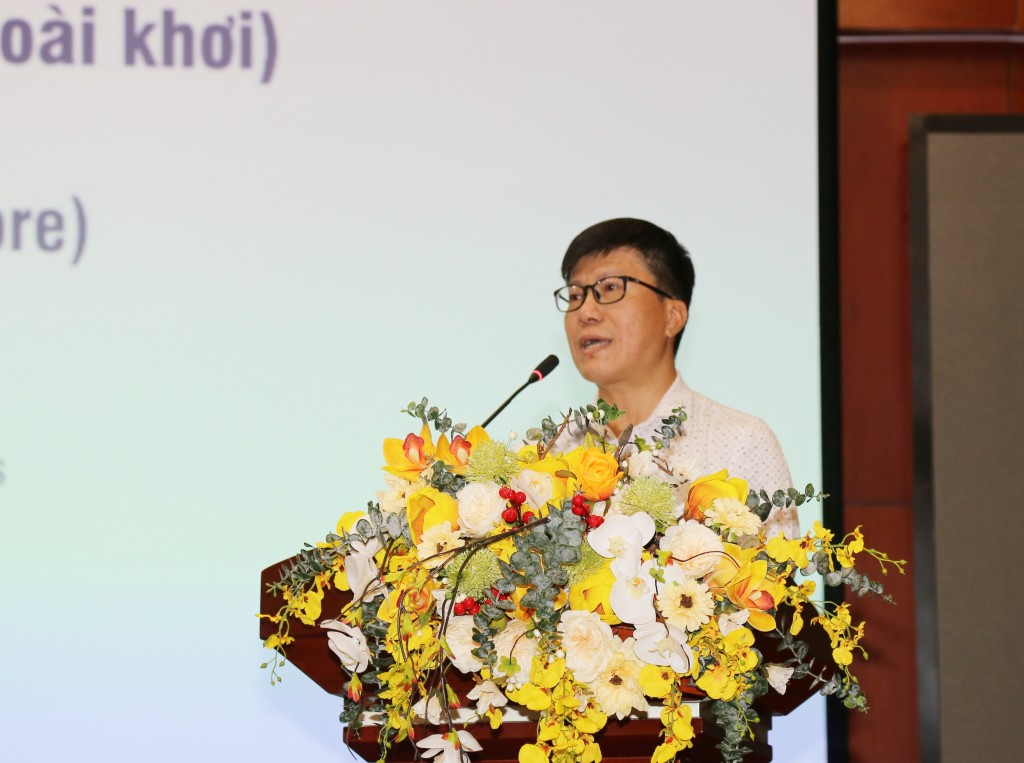
Mr. Nguyen Ba Cao – Southern Center for Marine Environmental Planning and Survey.
According to the Vietnam Administration of Seas and Islands, the Ministry of Natural Resources and Environment has received more than 70 proposals for measurements, monitoring, investigation, exploration, and marine surveys to serve the development of offshore wind power projects. Among these proposals, the largest requested sea area covers 715,572 hectares, while the smallest is just 0.03 hectares. Although the National Marine Spatial Plan was approved by the National Assembly (on 28/6/2024), it will take time to clarify and establish specific regulations on the allocation of marine space for offshore wind survey activities and construction.
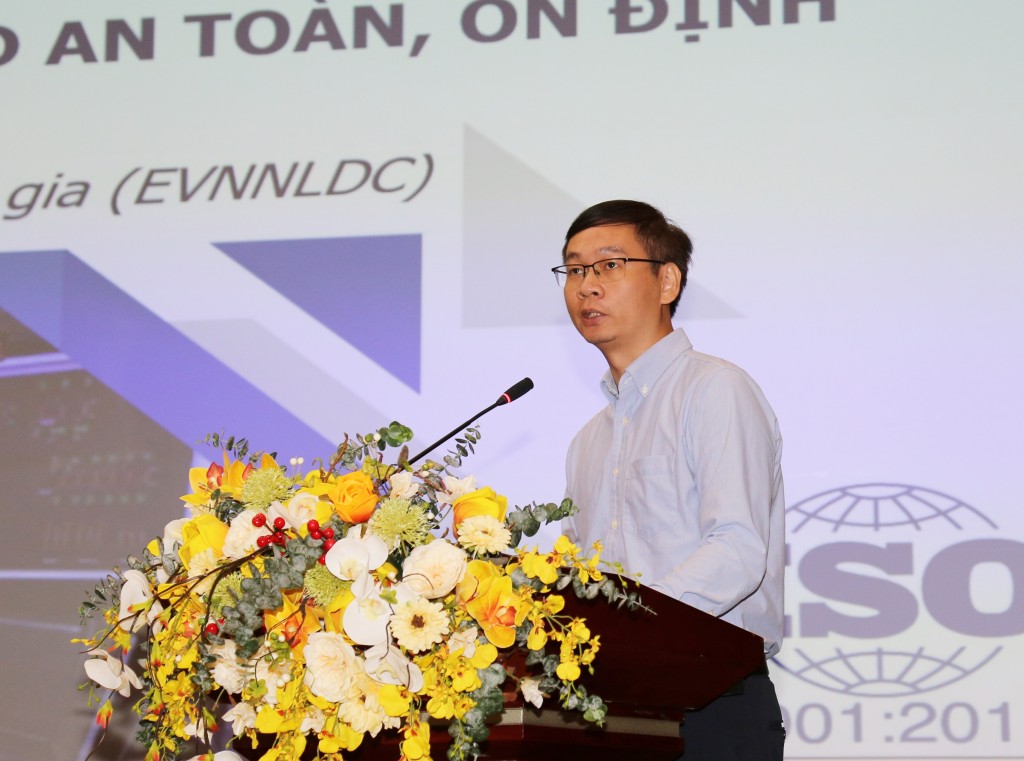
Mr. Nguyen Minh Quang – Deputy Head of Market Operations Department, National Load Dispatch Center (NLDC).
According to the presentation by the National Load Dispatch Center, the projected installed capacity by 2030 under Power Development Plan VIII is considered reasonable. However, there is a high risk that the progress of power sources by 2025 may fall behind the planned schedule. Nationwide power supply is expected to grow more slowly than demand, particularly in the northern region, leading to continued challenges in electricity supply.
The key task ahead is to establish a rational and sufficiently flexible power generation mix, while still aligning with the Just Energy Transition Partnership (JETP) roadmap. This requires ensuring the on-schedule development of baseload power sources as planned in PDP VIII, accelerating the deployment of renewable energy in the North, and increasing reasonable power imports. At the same time, it is critical to ensure timely implementation of both domestic and cross-border transmission projects. LNG will play an increasingly important role, and mechanisms are needed to secure supply for gas-fired power plants, which are currently facing domestic gas shortages. As for hydropower, water must be used efficiently to ensure supply during peak dry seasons. Rooftop solar power will continue to develop, but will mainly follow a self-generation, self-consumption model.
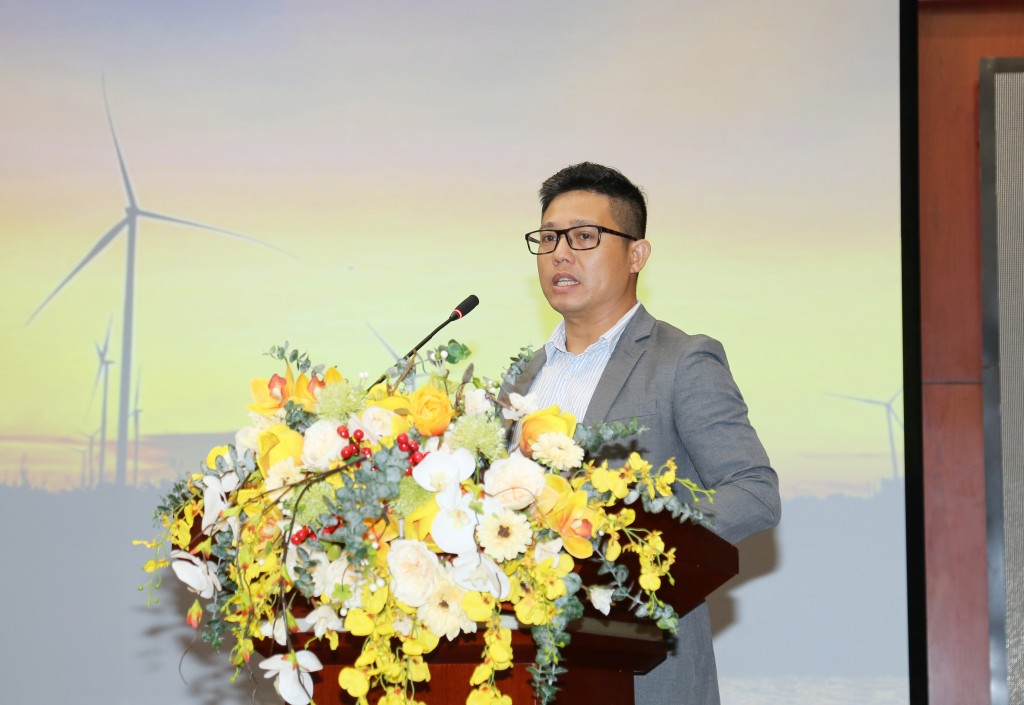
Mr. Phan Thanh Tung – Project Development Director, IPC Construction Joint Stock Company (IPC E&C).
IPC Construction Joint Stock Company (IPC E&C) presented the necessary steps for Vietnamese contractors to participate in the wind and solar power value chain. Starting from accepting small subcontracting roles to gain experience, the company gradually invested in large cranes to handle wind power construction. Today, IPC E&C is capable of independently taking on EPC contracts for both wind and solar power projects. Moreover, IPC E&C has acquired the expertise to provide operation and maintenance (O&M) services for wind and solar projects, helping to reduce costs compared to hiring foreign specialists.
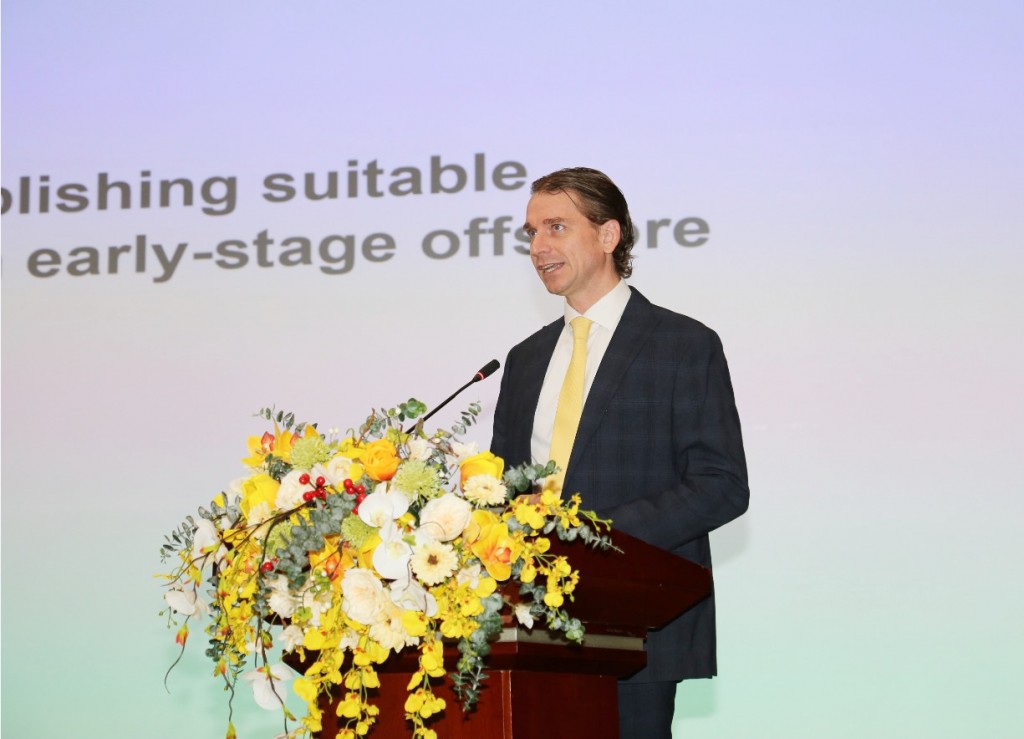
Mr. Stuart Livesey – Country Director, Copenhagen Infrastructure Partners (CIP), Vietnam.
The representative of Denmark’s Copenhagen Infrastructure Partners (CIP) shared international experiences in offshore wind development through various models, including Feed-in Tariffs (FIT), auctions, and hybrid pilot approaches. He emphasized that selecting a few trusted partners with strong capabilities and international experience to collaborate with state-owned enterprises on pilot projects is essential if Vietnam is to achieve its offshore wind targets under Power Development Plan VIII by 2030. Time is running short, and the selected mechanism must ensure exclusivity for project development in surveyed marine areas, along with guaranteed power purchase rights, to secure investment returns and de-risk the development process.
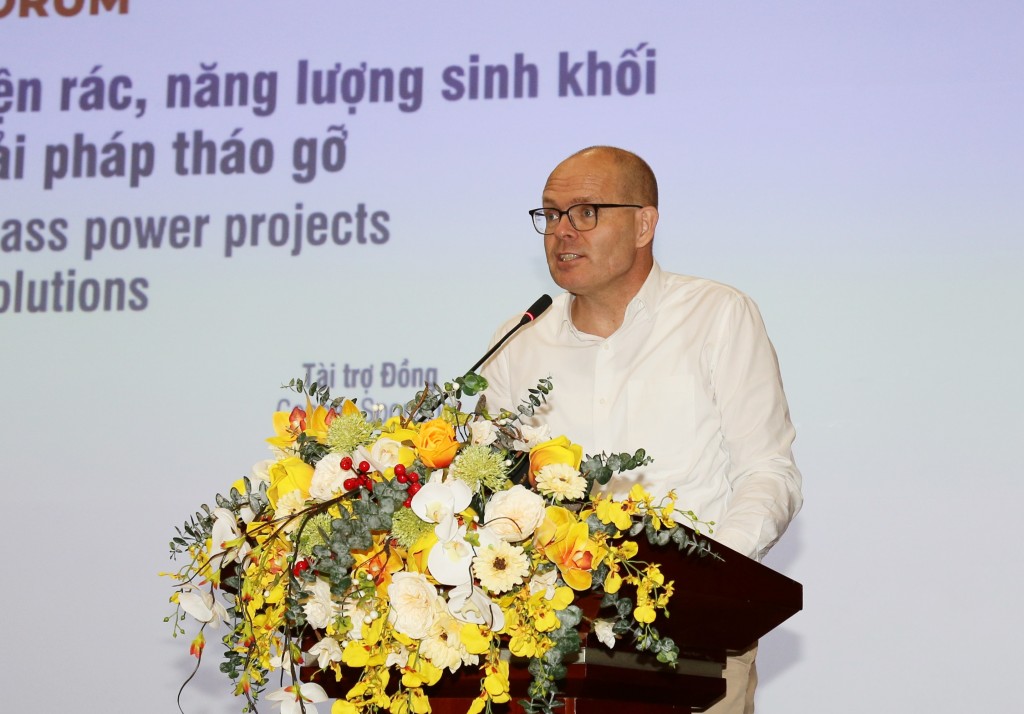
Mr. Markus Bissel – Project Director, Vietnam-Germany Energy Partnership (GIZ).
Representing GIZ, Mr. Markus Bissel, Project Director of the Vietnam-Germany Energy Partnership, stated that achieving a successful power system transition requires substantial investment in infrastructure. Integrating low-carbon generation sources into the power system will inevitably lead to higher electricity costs compared to traditional energy sources. GIZ has conducted extensive research on the challenges of energy transition in Vietnam and is ready to offer effective solutions and technical support to its partners.
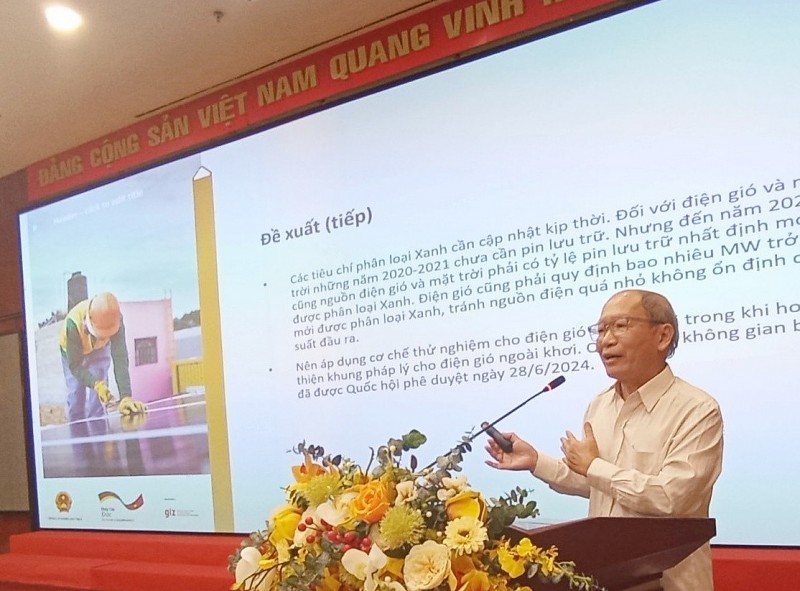
Mr. Dao Nhat Dinh – Scientific Council, Vietnam Energy Magazine.
The Scientific Council of Vietnam Energy Magazine presented insights on mobilizing foreign direct investment (FDI) for power development, along with the legal framework for green classification, green credit, green finance, and green bonds to support the implementation of power projects under Power Development Plan VIII.
Regarding FDI mobilization, while registered FDI capital has seen consistent growth in recent years, FDI specifically into the power sector remains limited — only USD 2.36 billion in 2023, mostly for projects prepared years in advance. FDI plays a vital role in power generation, especially as Vietnamese banks currently lack the capacity to finance multiple large-scale, long-payback projects simultaneously.
FDI projects must comply with the Law on Investment, the Law on Construction, and various other legal and sub-legal documents. These regulations are often overlapping and of inconsistent quality. The government needs to review and streamline investment-related laws and decrees, and adopt stable, predictable policy frameworks.
Although "green" classifications were defined under the 2020 Law on Environmental Protection and its guiding decrees, detailed criteria for green technologies and green credit have yet to be clearly established. At the same time, overly strict definitions may inadvertently hinder investment in supporting technologies that enable the growth of renewable energy.
If green-oriented funding sources like JETP are allocated solely to renewables while excluding gas-fired power, and with energy storage still beyond the practical capabilities of the grid, then renewable energy — despite access to concessional capital — will struggle to scale, due to the lack of reliable supporting power sources.
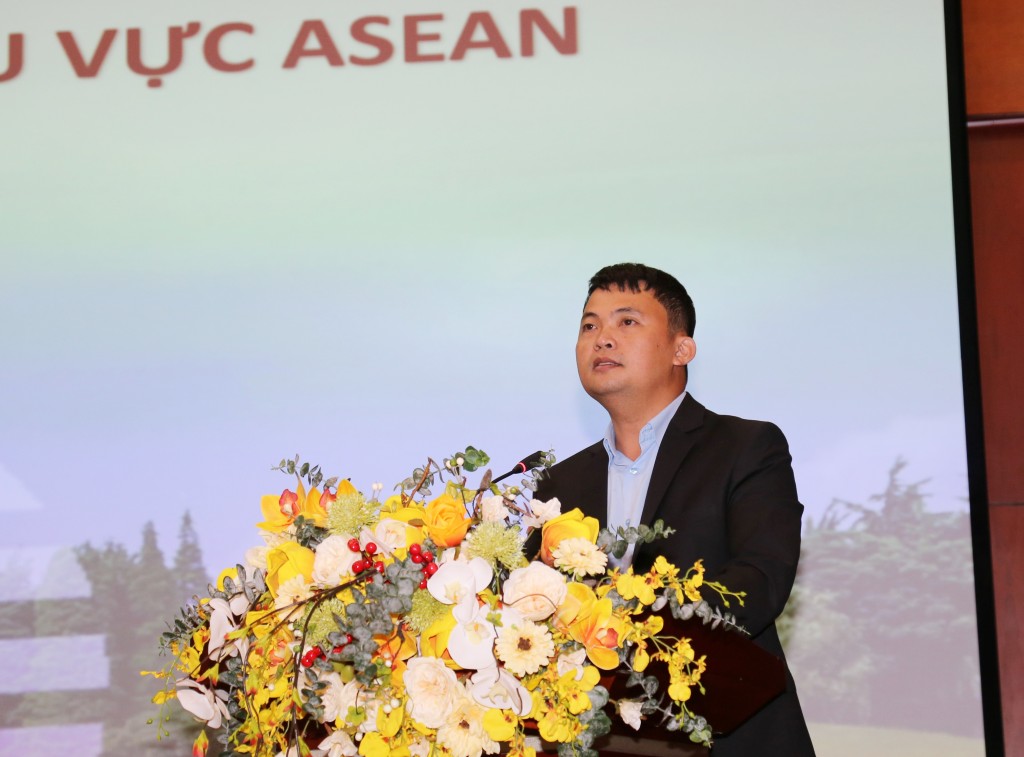
Mr. Tran Hoang Anh – Director, Can Tho Waste-to-Energy Plant
Everbright Group (China) has proven its waste-to-energy technology through the successful operation of the Can Tho Waste-to-Energy Plant and is currently developing a similar project in Thua Thien Hue Province.
The representative of the Can Tho Waste-to-Energy Plant (under Everbright) also expressed concerns about the lengthy investment procedures in Vietnam. Investor risks may further increase if the duration of the power purchase agreement (PPA) for waste-to-energy projects is shortened to less than 20 years, and if the revenue from waste treatment is deducted from the electricity sales revenue.
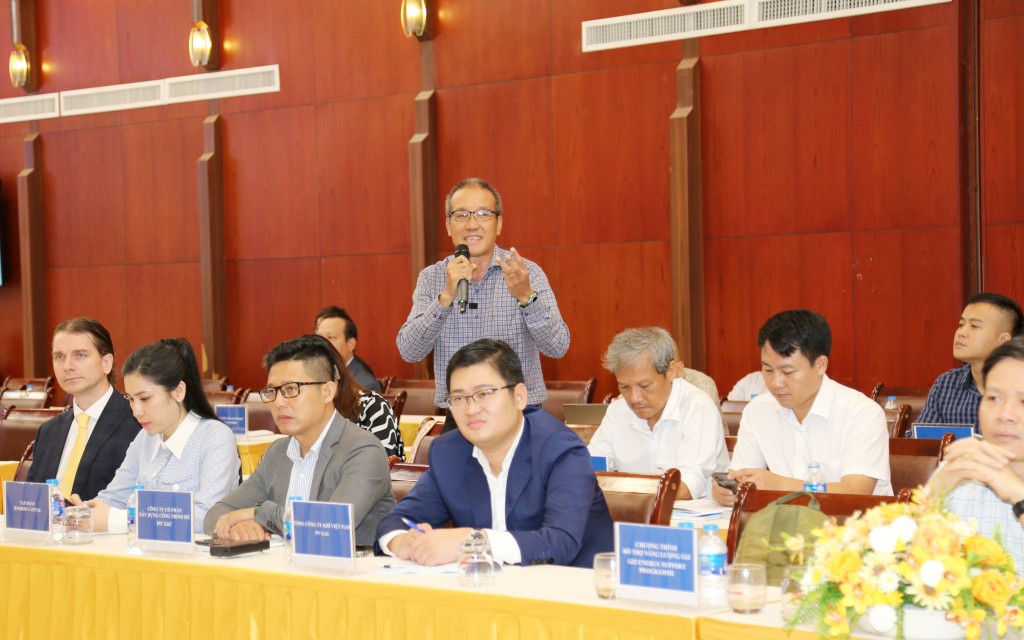
Delegates’ Remarks
During the discussion session, various opinions and proposals were shared. Mr. Bui Van Thinh – Chairman of the Binh Thuan Wind Power Association – emphasized that the biggest barrier to the development of power generation in Vietnam is the electricity price. He suggested that the Government should establish a clear roadmap for electricity price increases so that investors can assess the investment efficiency and make informed decisions.
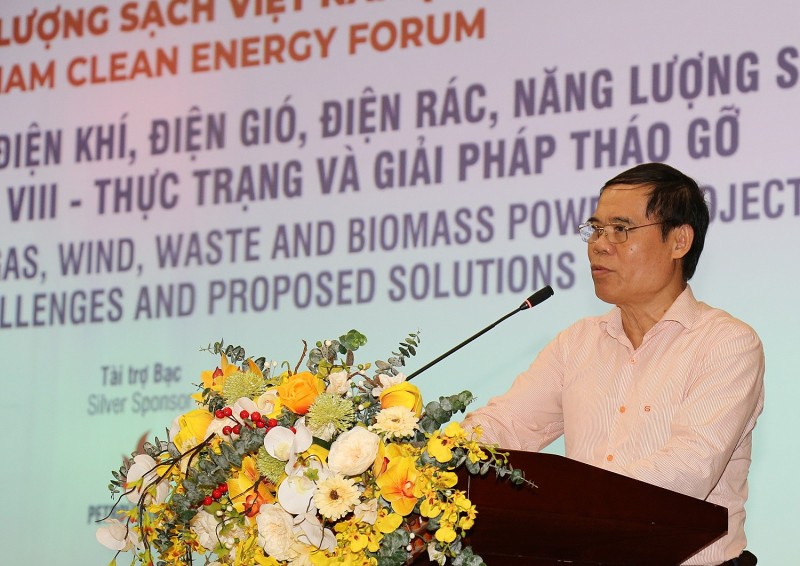
Mr. Nguyen Thai Son – Executive Vice President, Vietnam Energy Association (VEA).
In his closing remarks, Mr. Nguyen Thai Son, Executive Vice President of the Vietnam Energy Association, summarized the key points presented and discussed throughout the Forum, including legal and technical proposals. He emphasized that the Organizing Committee will compile all the opinions and recommendations and submit a report to the relevant authorities for consideration and resolution of the current challenges in mechanisms and policies for the development of gas-fired power, wind power, waste-to-energy, and biomass energy under Power Development Plan VIII./.

 Tiếng Việt
Tiếng Việt Tiếng Anh
Tiếng Anh
